List of heads of state of Costa Rica
The following is the list of all the heads of state of Costa Rica. The current Constitution establishes that the President of Costa Rica is both head of state and head of government, and the current officeholder is Carlos Alvarado Quesada of the Citizens' Action Party.
First independent governments (1821–1824)
On October 11, 1821, the province of Costa Rica proclaimed its absolute independence from Spain. On the 29th of that month, the city of Cartago, head of the Partido de Costa Rican, also signed an act declaring the absolute independence of the Spanish Government.
During this period the main divisions occurred between two sides; the imperialist who sought to annex Costa Rica to the First Mexican Empire and the Republican who sought full independence from Costa Rica. The monarchicals or monarchists also advocated the recognition of Agustín de Iturbide as emperor.
Political chief of the Province of Costa Rica[1] | Office | Term | Faction | |||
|---|---|---|---|---|---|---|
|
Republicans Imperialists | ||||||
 | Juan Manuel de Cañas-Trujillo y Sánchez de Madrid | Political chief | October 11, 1821]– November 12, 1821 | Españolista | ||
 | Nicolás Carrillo y Aguirre | President of the Town's Legates Junta | November 12, 1821 – December 1, 1821 | Imperialista | ||
 | Pedro José de Alvarado y Baeza | President of the Provisional Government Junta | December 1821– January 1822 | Imperialista | ||
 | Rafael Barroeta y Castilla | President of the Electors Board | January 6–13, 1822; president of the Superior Government Junta, January 6 – April 13, 1822 | Imperialista | ||
 | Santiago de Bonilla y Laya-Bolívar | President of the Superior Government Junta | 13 Aprial – June 15, 1822 | Liberal | ||
 | José María de Peralta y La Vega | President of the Superior Government Junta | June 15 – October 17, 1822 | Republican | ||
| José Rafael Gallegos Alvarado | President of the Superior Government Junta | 17 octubre de 1822– January 1, 1823 | Imperialista | |||
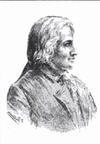 | José Santos Lombardo y Alvarado | President of the Superior Government Junta | January 1 – March 20, 1823 | Imperialista | ||
 | Rafael Francisco Osejo | President of the Diputación of Costa Rica | March 20–29, 1823 | Republican | ||
| Joaquín de Oreamuno y Muñoz de la Trinidad | General Commander of Arms, de facto | March 29 – April 5 1823 | Imperialista | |||
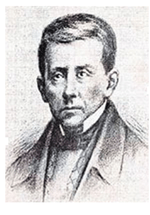 | Gregorio José Ramírez y Castro | General Commander of Arms, de facto | April 5 – 16, 1823 | Republican | ||
 | José María de Peralta y La Vega | President of the Constituent Provincial Congress | April 16 – May 10, 1823 | Republican | ||
 | Manuel Alvarado e Hidalgo | President of the Superior Government Junta | 1823–1824 | Republican | ||
 | Eusebio Rodríguez y Castro | President of the Superior Government Junta | January 8 – February 12 1824 | Republican | ||
 | Manuel Alvarado e Hidalgo | President of the Superior Government Junta | February 12 – September 8 1824 | Republican | ||
Emperor (1822–1823)
Emperor |
Term | Notes | |
|---|---|---|---|
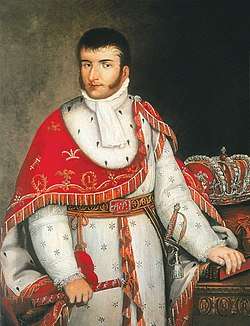 |
Agustín de Iturbide | May 19, 1822– March 19, 1823 |
During the period of permanence of Costa Rica in the First Mexican Empire, Emperor Agustín de Iturbide was the monarch of the country as of the rest of the Empire. However, imperial sovereignty was not universally recognized. The disputes between imperialists loyal to Iturbide and Republicans seeking full independence led to the first Costa Rican civil war. |
President of the Federal Republic of Central America (1823–1839)
Between 1824 and 1838 Costa Rica was a member of the Federal Republic of Central America, and the president was the federal president of the country, although the political influence of the federal government was minimal.
 President | Term (Election) | Profession | Party | |||
|---|---|---|---|---|---|---|
|
| ||||||
| José Matías Delgado | 1823 (interim) | Catholic Priest | Liberal Party | |||
 | First Triumvirate: | (1823) | Liberal Party | |||
 | Second Triumvirate:
|
1823–1825 | Liberal Party | |||
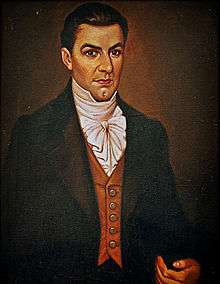 | Manuel José Arce | 29 April 1825-13 April 1829 (Appointed by Congress) | Military | Liberal Party | ||
 | Mariano Beltranena y Llano | 13 April 1829-14 June 1829 (Deposed) | Aristocrat | Conservative Party | ||
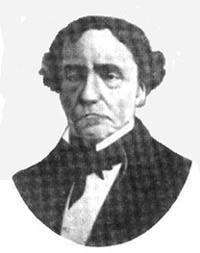 | José Francisco Barrundia | 26 June 1829-16 June 1830 (interim) | Journalist | Liberal Party | ||
| José Francisco Morazán Quezada | 16 September 1830-16 September 1834 (1830) | Military | Liberal Party | |||
 | José Cecilio del Valle† | (1834. Died before assuming office) | Military | Conservative Party | ||
 | José Gregorio Salazar | 16 September 1834-14 February 1835 (interim) | Politician | Liberal Party | ||
| José Francisco Morazán Quezada | February 14, 1835 – February 1, 1839 (1835, Costa Rica splits from the Federation). | Military | Liberal Party | |||
Heads of State of Costa Rica (1824–1847)
Between 1824 and 1847 and according to the Constitutions of the United Provinces of Central America (1824), of Costa Rica from 1825 and 1844, the chief of the executive branch bore the title of supreme chief or first chief.
Liberals almost completely dominated Costa Rican politics during this period, to the point that many historians call this the "Liberal State". In Costa Rica there was no war between liberals and conservatives as was common in the rest of Latin America and even coup d'etats and de facto governments were mostly between liberal factions. The only conservative president of this period was José Rafael de Gallegos y Alvarado who did not end his term. Another conservative, Nicolás Ulloa Soto, never took office.ref>Msc. Marvin Carvajal Barrantes.[2]
 Heads of the Free State of Costa Rica[1] | Province | Term (Election) | Profession | Faction | Vice Head | ||
|---|---|---|---|---|---|---|---|
|
Liberal Conservative Militaryy | |||||||
| Juan Mora Fernández 1825 and 1829) | San José | 1824–1833 | Teacher and trader | Liberal | Mariano Montealegre Bustamante (1824–1825) José Rafael de Gallegos y Alvarado (1825–1829) | ||
| José Rafael de Gallegos y Alvarado | Cartago | 1833–1835 (1833, resignes) | Businessman | Conservative | Manuel Fernández Chacón | ||
 | Manuel Fernández Chacón | San José | interim | Landowner | Liberal | Vacant | |
 | Nicolás Ulloa Soto | Heredia | Appointed in 1835 by Congress, never took office. | Businessman | Conservative | Manuel Fernández Chacón | |
 | Braulio Carrillo Colina | Cartago | 1835–1837 (1835) | Lawyer | Liberal | ||
 | Joaquín Mora Fernández | San José | March–April 1837 interim | Lawyer | Liberal | ||
| Manuel Aguilar Chacón | San José | 1837–1838 (1837, deposed by coup lead by Carrillo) | Lawyer | Liberal | Juan Mora Fernández | ||
 | Braulio Carrillo Colina | Cartago | November 14, 1838 – April 8, 1842 (de facto rule, deposed by Morazan) | Lawyer | Liberal | Miguel Carranza Fernández (1838–1841) Manuel Antonio Bonilla Nava (1841–182) | |
| Francisco Morazán Quesada | Born in Honduras | April 8 – September 11, 1842 (de facto, deposed) | Military | Liberal | Juan Mora Fernández | ||
| Antonio Pinto Soares | Born in Portugal | September 11–27, 1842 (interim) | Military | Liberal | Vacant | ||
| José María Alfaro Zamora | Alajuela | 27 September 1842-29 November 1844 (interim) | Trader | Liberal | Francisco María Oreamuno Bonilla (1843–1844) | ||
| Francisco María Oreamuno Bonilla | Cartago | November 29, 1844 – June 7, 1846 (1844, deposed by Congress after neglecting the office) | Lawyer | Liberal | José María Castro Madriz (1845–1847) | ||
| José María Alfaro Zamora | Alajuela | June 7, 1846 – May 1, 1847 (interim) | Trader | Liberal | |||
President of the State of Costa Rica (1847–1848)
.svg.png) President of the State of Costa Rica[1] | Province | Term (Election) | Profession | Faction | Vice President | |||
|---|---|---|---|---|---|---|---|---|
|
| ||||||||
| 1 | José María Alfaro Zamora | Alajuela | May 1, 1847 – May 6, 1847 (interim) | Trader | Liberal | José María Castro Madriz | ||
| 2 | José María Castro Madriz | San José | May 8, 1847 – August 31, 1848 (1847) | Lawyer | Liberal | José María Alfaro Zamora (1847) Juan Rafael Mora Porras (1847–1848) | ||
President of the Republic of Costa Rica (1848–1948)
Current title of the head of state and government since the Constitution of 1847. The historiography tends to divide this historical period in two, the previous one to the civil war of 1948 and the subsequent one to it. During the first period from 1847 to 1948, the liberals almost completely dominated Costa Rican politics. The liberal hegemony only broke briefly with the government of Vicente Herrera Zeledón (who however had been elected by the liberals) who ruled de facto for just over a year between 1876 and 1877. Even the dictator Federico Tinoco whose dictatorship lasted two years was also liberal. In addition, Costa Rican politics was then (and continues to be to some extent) eminently personalist, so political parties such as Civil, National, Peliquista and Republican revolved mostly around leaders and political figures and not ideologies although, in general terms, they usually be diffusely associated with liberalism.
Costa Rican liberalism was also closely linked to the coffee-growing oligarchy and an important sector of the aristocracy. Attempts to create party alternatives not only formally ideological but more to the left were the Reform Party of Father Jorge Volio Jiménez, strongly influenced by the Catholic social teaching and Christian socialism and Manuel Mora Valverde's Workers and Peasants Block (which precisely it would break with the Reform Party after Volio's alliance with the liberal Ricardo Jiménez Oreamuno of the Republican Party) that would lead to the Costa Rican Communist Party. However, even after the war, an important influence of liberal thinking could be seen in the presidents emanated from opposition coalitions as well as within the Social Christian Unity Party.
The National Republican Party led several liberals to the presidency, however, it would be under the government of perhaps its most famous president Rafael Ángel Calderón Guardia that the reforms known as the Social Guarantees would be given for the benefit of the poorest classes and would be one of the triggers of the war of 48.[3]
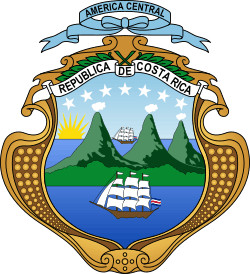 Presidents of the Republic of Costa Rica[1][4] | Province | Term (Election) | Profession | Faction/Party | Vice President | |||
|---|---|---|---|---|---|---|---|---|
|
Liberal Olympus Military Constitutional Party Civil Party Republican Party National Union Party National National Republican Party | ||||||||
| 1 | José María Castro Madriz | San José | August 31, 1848 – November 15, 1849 (1847, deposed) | Lawyer | Liberal | Manuel José Carazo Bonilla (1848–1849) Juan Rafael Mora Porras (1849) | ||
| 1.a |  | Miguel Mora Porras | San José | November 16–26, 1849 (interim) | Trader | Liberal | Vacant | |
| 2 | Juan Rafael Mora Porras | San José | November 26 – December 30, 1849 – August 14, 1859 (1849, 1853 and 1859. Deposed by Montealegre.) | Empresario | Liberal | Francisco María Oreamuno Bonilla† (1853–1856) Vicente Aguilar Cubero (1856–1857) Rafael García-Escalante Nava (1857–1859) | ||
| 3 | José María Montealegre Fernández | San José | 14 August 1859-8 May 1863 (de facto after a coup, later elected in 1860) | Medic | Liberal | Abolished Alternates appointed by Congress. | ||
| 4 | Jesús Jiménez Zamora | Cartago | 8 May 1863-8 May 1866 (1863) | Medic | Liberal | |||
| 5 | José María Castro Madriz | San José | May 8, 1866 – November 1, 1868 (1866, deposed by Jiménez.) | Lawyer | Liberal | |||
| 6 | Jesús Jiménez Zamora | Cartago | November 1, 1868 – April 27, 1870 (de facto after a coup, elected as single candidate in 1869, deposed by coup lead by Guardia.) | Medic | Liberal | |||
| 7 | Bruno Carranza Ramírez | San José | April 27 – August 8, 1870 (interim, appointed by Guardia.) | Medic | Liberal | |||
| 8 | Tomás Guardia Gutiérrez | Guanacaste | August 8, 1870 – May 8, 1876 (de facto after coup, elected in 1872).) | Military | Liberal | |||
| 9 | 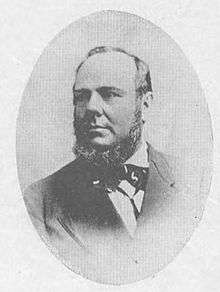 | Aniceto Esquivel Sáenz | Cartago | May 8, 1876 – July 30, 1876 (1876 as Guardia's puppet, deposed by Guardia). | Lawyer | Liberal | ||
| 10 | Vicente Herrera Zeledón | San José | 30 July 1876-23 September 1877 (Appointed by Guardia, resigns due to health issues.) | Lawyer | Conservative | |||
| 11 | Tomás Guardia Gutiérrez† | Guanacaste | September 23, 1877 – July 6, 1882 (ruled as a dictator, died in office.) | Military | Liberal | |||
| 12 | 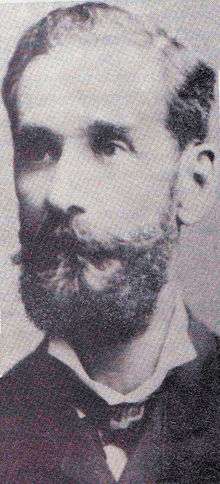 | Saturnino Lizano Gutiérrez | Puntarenas | July 6 – August 10, 1882 (interim) | Trader | Liberal | ||
| 13 | Próspero Fernández Oreamuno† | San José | August 10, 1882 – March 12, 1885 (1882. Died in office) | Philosopher | Olympus | |||
| 14 | Bernardo Soto Alfaro | Alajuela | March 12, 1885 – November 7, 1889 (interim later elected in 1886, resigns.) | Military and lawyer | Olympus | |||
| 14.a | Carlos Durán Cartín | San José | November 7, 1889 – May 8, 1890 (interim) | Medic | Liberal | |||
| 15 | José Rodríguez Zeledón | San José | 8 May 1890-8 May 1894 (1889) | Lawyer | Constitutional Party | |||
| 16 | 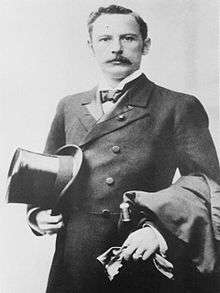 | Rafael Yglesias Castro | San José | 8 May 1894-8 May 1902 (1894 and 1897–1898) | Businessman | Civil Party | ||
| 17 | Ascensión Esquivel Ibarra | Guanacaste | 8 May 1902-8 May 1906 (1901–1902) | Lawyer | National Union Party | |||
| 18 |  | Cleto González Víquez | Heredia | 8 May 1906-8 May 1910 (1905–1906) | Lawyer | National Party | ||
| 19 | 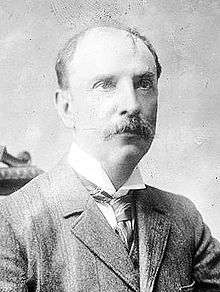 | Ricardo Jiménez Oreamuno | Cartago | 8 May 1910-8 May 1914 (1909–1910) | Lawyer | Republican Party | ||
| 20 | 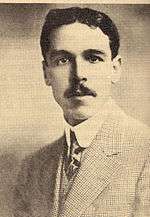 | Alfredo González Flores | Heredia | May 8, 1914 – January 27, 1917 (Appointed by Congress, deposed in the 1917 Costa Rican coup d'état lead by Tinoco). | Lawyer | Republican Party | ||
| 21 | 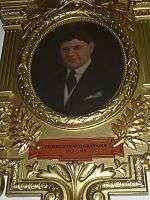 | Federico Alberto Tinoco Granados | San José | January 27, 1917 – August 20, 1919 (ruled after coup, elected as single candidate in 1917, deposed by popular uprising). | Businessman | Peliquista Party | ||
| 22 | Juan Bautista Quirós Segura | San José | August 20, 1919 – September 2, 1919 (interim, forced to resign). | Empresario | Peliquista Party | |||
| 23 | Francisco Aguilar Barquero | Cartago | 2 September 1919-8 May 1920 (interim). | Teacher | Republican Party | |||
| 24 | Julio Acosta García | Alajuela | 8 May 1920-8 May 1924 (1919) | Diplomatic | Constitutional Party | |||
| 25 |  | Ricardo Jiménez Oreamuno | Cartago | May 8, 1924 – May 8, 1928 (1923) | Lawyer | Republican Party | ||
| 26 |  | Cleto González Víquez | Heredia | 8 May 1928-8 May 1932 (1928) | Lawyer | National Union Party | ||
| 27 |  | Ricardo Jiménez Oreamuno | Cartago | May 8, 1932 – May 8, 1936 (1932) | Lawyer | National Republican Party | ||
| 28 |  | León Cortés Castro | Alajuela | 8 May 1936-8 May 1940 (1936) | Teacher and lawyer | National Republican Party | ||
| 29 | 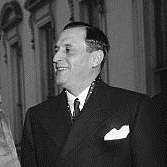 | Rafael Ángel Calderón Guardia | San José | 8 May 1940-8 May 1944 (1940) | Medic | National Republican Party | ||
| 30 | 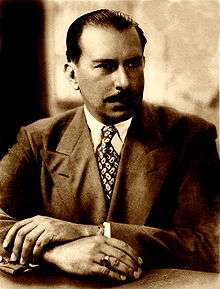 | Teodoro Picado Michalski | San José | May 8, 1944 – April 19, 1948 (1944, deposed by civil war). | Teacher | National Republican Party | ||
| 30.a | .jpg) | Santos León Herrera | San José | April 19 – May 8, 1948 (interim). | Engineer | National Republican Party | ||
Founding Junta of the Second Republic (1948–1949)
After the rupture of the constitutional order in 1948 when the third and last Costa Rican civil war broke out, the victorious side formed by the National Liberation Movement exercised de facto power for 18 months under the self-appointed Founding Junta of the Second Republic chaired by José Figueres Ferrer who proclaimed the beginning of the Second Costa Rican Republic.
| Junta Fundadora de la Segunda República | Term | Party | ||
|---|---|---|---|---|
 |
José Figueres Ferrer, Benjamín Odio Odio, Gonzalo Facio Segreda, Alberto Martén Chavarría, Uladislao Gámez Solano, Francisco José Orlich Bolmarcich, Bruce Masís Dibiasi, Raúl Blanco Cervantes, Benjamín Núñez Vargas, Edgar Cardona Quirós, Daniel Oduber Quirós | May 8, 1948 – November 8, 1949 | National Liberation Movement | |
President of the Republic of Costa Rica (1949-today)
José Figueres would hand over the Executive Power to Otilio Ulate Blanco on November 8, 1949 as the alleged winner of the 1948 elections whose annulment by the government of Teodoro Picado and Rafael Ángel Calderón Guardia caused the civil war of the same year. A National Constituent Assembly was also convened that drafted the 1949 Constitution, still in force, and also created the official positions of First and Second Vice presidents of the Republic.
The National Liberation Party, of social democratic ideology and led by the war-winning leader José Figueres Ferrer would become the main political force after 48, but both Calderonistas and liberals would remain active allying with each other, which would allow the governments of Mario Echandi Jiménez and José Joaquín Trejos Fernández. Following the merger of almost all the antiliberacionista opposition grouped in the Unity Coalition in the Social Christian Unity Party in 1983, this party and the National Liberation would form a solid bipartisanism so that all presidents between 1982 and 2014 belonged to one of these two parties. It is in 2014 that bipartisanship is broken with the coming to power of Luis Guillermo Solís Rivera, first president of the post-bipartisan stage and belonging to a party that was not linked to the two major traditional political tendencies (liberationism and calderonism) theCitizens' Action Party that had already been the main opposition force for two previous periods.[5]
 Presidents of the Republic of de Costa Rica[1][4] | Province | Term (Election) | Profession | Party | Vice presidents | |||
|---|---|---|---|---|---|---|---|---|
|
National Union Party National Liberation Party Social Christian Unity Party Citizens' Action Party | ||||||||
| 31 | 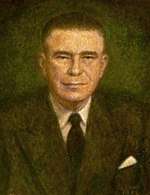 | Otilio Ulate Blanco | Alajuela | 8 November 1949-8 May 1953 (1948) | Journalist | National Union Party | Alberto Oreamuno Flores and Alfredo Volio Mata | |
| 32 |  | José Figueres Ferrer | Alajuela | 8 May 1953-8 May 1958 (1953) | Self-taught | National Liberation Party | Raúl Blanco Cervantes and Fernando Esquivel Bonilla | |
| 33 | 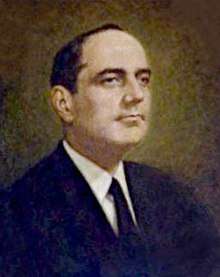 | Mario Echandi Jiménez | San José | 8 May 1958-8 May 1962 (1958) | Businessman | National Union Party | Abelardo Bonilla Baldares and José Joaquín Peralta Esquivel | |
| 34 |  | Francisco José Orlich Bolmarcich | Alajuela | 8 May 1962-8 May 1966 (1962) | Accountant | National Liberation Party | Raúl Blanco Cervantes and Carlos Sáenz Herrera | |
| 35 | 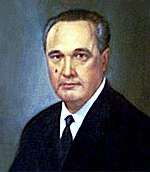 | José Joaquín Trejos Fernández | San José | 8 May 1966-8 May 1970 (1966) | College professor, chemist and mathematician | National Unification Coalition | Jorge Vega Rodríguez and Virgilio Calvo Sánchez | |
| 36 |  | José Figueres Ferrer | Alajuela | 8 May 1970-8 May 1974 (1970) | Self-taught | National Liberation Party] | Manuel Aguilar Bonilla and Jorge Rossi Chavarría | |
| 37 | .jpg) | Daniel Oduber Quirós | San José | 8 May 1974-8 May 1978 (1974) | Philosopher, lawyer and poet | National Liberation Party | Carlos Manuel Castillo Morales and Fernando Guzmán Mata | |
| 38 | 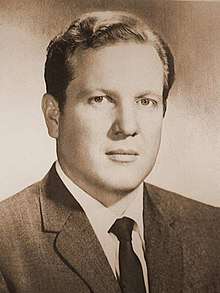 | Rodrigo Carazo Odio | Cartago | 8 May 1978-8 May 1982 (1978) | Economist | Unity Coalition | Rodrigo Altmann Ortiz and José Miguel Alfaro Rodríguez | |
| 39 | .jpg) | Luis Alberto Monge Álvarez | Alajuela | 8 May 1982-8 May 1986 (1982) | Farmer and trade union leader | National Liberation Party | Alberto Fait Lizano and Armando Aráuz Aguilar | |
| 40 | 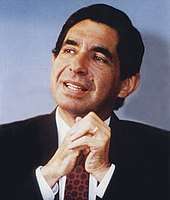 | Óscar Arias Sánchez | Heredia | 8 May 1986-8 May 1990 (1986) | Businessman and lawyer | National Liberation Party | Jorge Manuel Dengo Obregón and Victoria Garrón Orozco | |
| 41 | 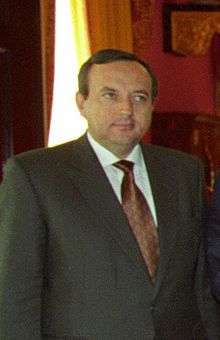 | Rafael Ángel Calderón Fournier | Born in Nicaragua | 8 May 1990-8 May 1994 (1990) | Lawyer | Social Christian Unity Party | Germán Serrano Pinto and Arnoldo López Echandi | |
| 42 | 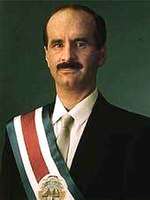 | José María Figueres Olsen | San José | 8 May 1994-8 May 1998 (1994) | Engineer | National Liberation Party | Rodrigo Oreamuno Blanco and Rebeca Grynspan Mayufis | |
| 43 |  | Miguel Ángel Rodríguez Echeverría | San José | 8 May 1998-8 May 2002 (1998) | Businessman and economist | Social Christian Unity Party | Astrid Fischel Volio and Elizabeth Odio Benito | |
| 44 | 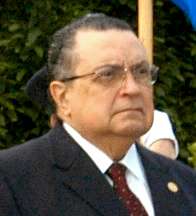 | Abel Pacheco de la Espriella | San José | 8 May 2002-8 May 2006 (2002) | Psychiatrist | Social Christian Unity Party | Lineth Saborío Chaverri and Luis Fishman Zonzinski | |
| 45 | 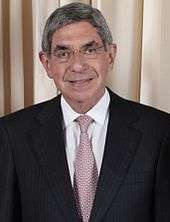 | Óscar Arias Sánchez | Heredia | 8 May 2006-8 May 2010 (2006) | Businessman and lawyer | National Liberation Party | Laura Chinchilla Miranda and Kevin Casas Zamora | |
| 46 | 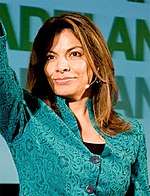 | Laura Chinchilla Miranda | San José | 8 May 2010-8 May 2014 (2010) | Political scientist | National Liberation Party | Alfio Piva Mesén and Luis Liberman Ginsburg | |
| 47 | 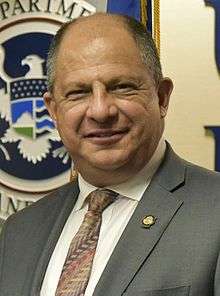 | Luis Guillermo Solís Rivera | San José | 8 May 2014-8 May 2018 (2014) | College professor, political scientist, sociologist, historian | Citizens' Action Party | Helio Fallas Venegas and Ana Helena Chacón Echeverría | |
| 48 | .jpg) | Carlos Alvarado Quesada | San José | May 8, 2018-Incumbent (2018) | Writer, journalist, political scientist | Citizens' Action Party | Epsy Campbell Barr and Marvin Rodríguez Cordero | |
References
- Obregón, Clotilde. Nuestros gobernantes: verdades del pasado para comprender el futuro. Editorial Universidad de Costa Rica. Retrieved May 9, 2017.
- La independencia de Costa Rica (2011) extraído en 2013
- http://geografiahistoriasecundaria.blogspot.com/p/la-crisis-de-la-republica-liberal-1914.html
- Jara Murillo, Carla Victoria (2007). "EL MENSAJE PRESIDENCIAL COSTARRICENSE DESDE LA ETNOGRAFÍA DE LA COMUNICACIÓN". Filología y Lingüística XXXIII (2): 141–178, 2007. Retrieved May 10, 2017.
- http://www.primeraplana.or.cr/app/cms/www/index.php?pk_articulo=3694